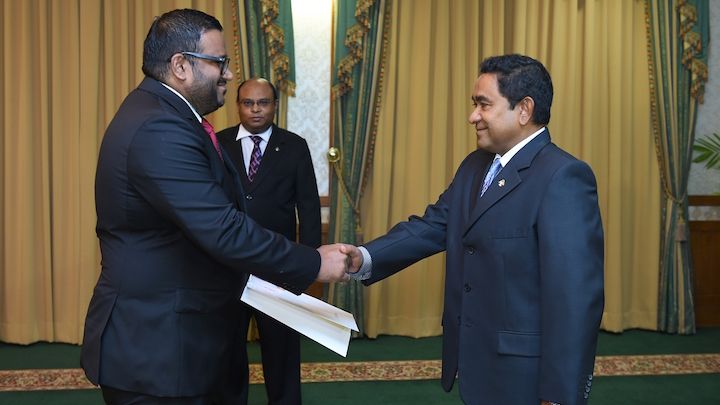Lawyer barred from visiting former vice president in jail
Police have barred lawyer of impeached vice president Ahmed Adeeb from prison visits, after the Supreme Court suspended his license to appear in courts. The apex court has since seized the authority to issue law licenses.

07 Nov 2015, 9:00 AM
Police have barred lawyer of impeached vice president Ahmed Adeeb from prison visits, after the Supreme Court suspended his license to appear in courts.
Hussain Shameem’s license to appear in courts was suspended on Wednesday on a charge of contempt of court.
A police spokesman said Shameem would not be allowed to visit Adeeb until his license is reinstated.
A second lawyer, Ali Nadheem, was allowed to visit Adeeb on Thursday and Friday, according to Adeeb’s office.
Become a member
Get full access to our archive and personalise your experience.
Already a member?
Discussion
No comments yet. Be the first to share your thoughts!
No comments yet. Be the first to join the conversation!
Join the Conversation
Sign in to share your thoughts under an alias and take part in the discussion. Independent journalism thrives on open, respectful debate — your voice matters.




